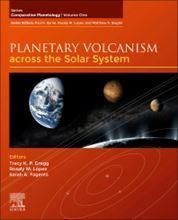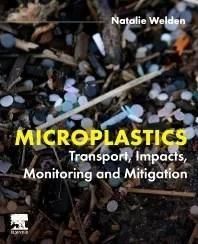Probabilistic Tsunami Hazard and Risk Analysis
◆日本地質学会第132年学術大会セール 開催中!:2025年10月24日(金)ご注文分まで
※上記表示の販売価格は割引適用後の価格です 出版済み 3-5週間でお届けいたします。 Title: Probabilistic Tsunami Hazard and Risk Analysis Subtitle: Towards Disaster Risk Reduction and Resilience Author: Goda, Katsuichiro (Associate Professor, Departments of Earth Sciences and Statistical and Actuarial Sciences and Canada Research Chair in Multi-Hazard Risk Assessment, Western University, Canada) / De Risi, Raffaele (Associate Professor in the School of C Publisher: Elsevier USA ISBN: 9780443189876 Cover: PAPERBACK Date: 2024年10月 DESCRIPTION Probabilistic Tsunami Hazard and Risk Analysis: Towards Disaster Risk Reduction and Resilience covers recent calls for advances in quantitative tsunami hazard and risk analyses for the synthesis of broad knowledge basis and solid understanding of interdisciplinary fields, spanning seismology, tsunami science, and coastal engineering. These new approaches are essential for enhanced disaster resilience of society under multiple hazards and changing climate as tsunamis can cause catastrophic loss to coastal cities and communities globally. This is a low-probability high-consequence event, and it is not easy to develop effective disaster risk reduction measures. In particular, uncertainties associated with tsunami hazards and risks are large. The knowledge and skills for quantitative probabilistic tsunami hazard and risk assessments are in high demand and are required in various related fields, including disaster risk management (governments and local communities), and the insurance and reinsurance industry (catastrophe model). TABLE OF CONTENTS 1. Introduction of Probabilistic Tsunami Hazard and Risk Analysis - Towards Disaster Risk Reduction and Resilience Section 1: Fundamentals of Probabilistic Tsunami Hazard and Risk Analysis 2. Tsunami Generation 3. Tsunami Propagation and Runup 4. Tsunami Effects on Built Environment 5. Probabilistic Tsunami Hazard and Risk Assessments 6. Tsunami Disaster Risk Reduction and Management Section 2: Advanced Topics and Applications related to Probabilistic Tsunami Hazard and Risk Analysis 7. Historical Tsunami Records and Paleo Tsunamis 8. Informing Megathrust Tsunami Source Models with Knowledge of Tectonics and Fault Mechanics 9. Tsunamis Triggered by Splay Faulting 10. Tsunami Hazard from Subaerial Landslides 11. Dense Tsunami Monitoring System 12. Machine Learning Approaches for Tsunami Early Warning 13. Global Tsunami Hazards and Risks 14. Probabilistic Tsunami Hazard Assessment for New Zealand 15. Tsunami Hazard and Risk in the Mediterranean Sea 16. Tsunami Hazard Assessment in Chile 17. Uncertainty in Empirical Tsunami Fragility Curves 18. Analytical Tsunami Fragility Curves 19. Modeling and Uncertainty in Probabilistic Tsunami Hazard and Risk Assessment 20. Multi-hazard Risk Assessments 21. Dynamic Agent-based Evacuation 22. Sea Level Rise and Tsunami Risk 23. Long-term Tsunami Risk Considering Time-dependent Earthquake Hazard and Nonstationary Sea Level Rise 24. Digital Twin Paradigm for Coastal Disaster Risk Reduction and Resilience 最近チェックした商品

|
||||||||||||||||||||||||||||||||||||||||||||||||





























